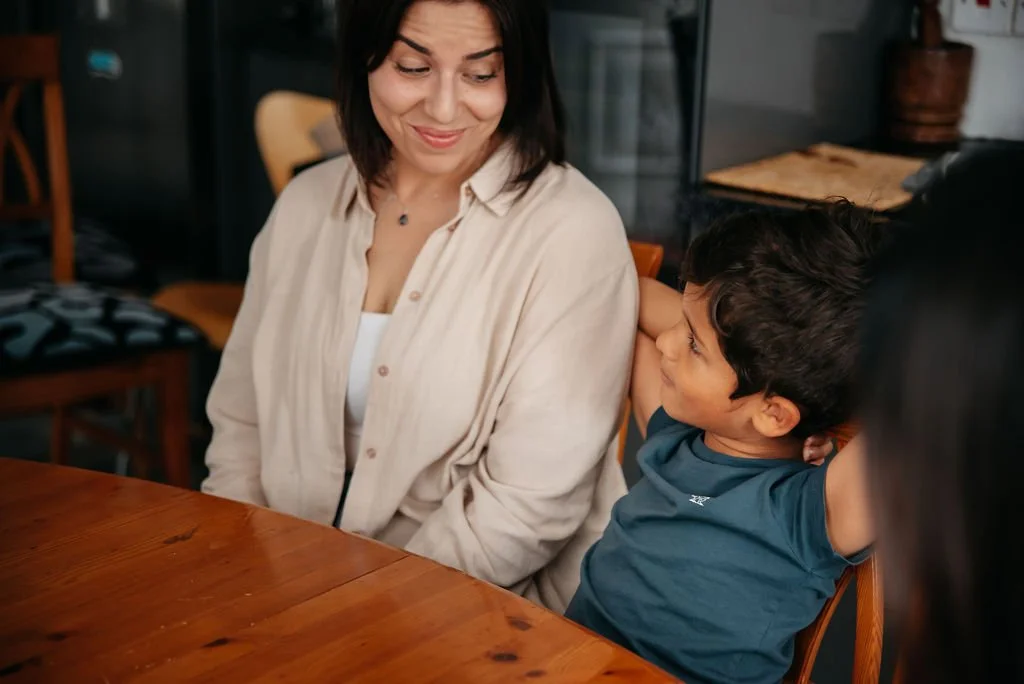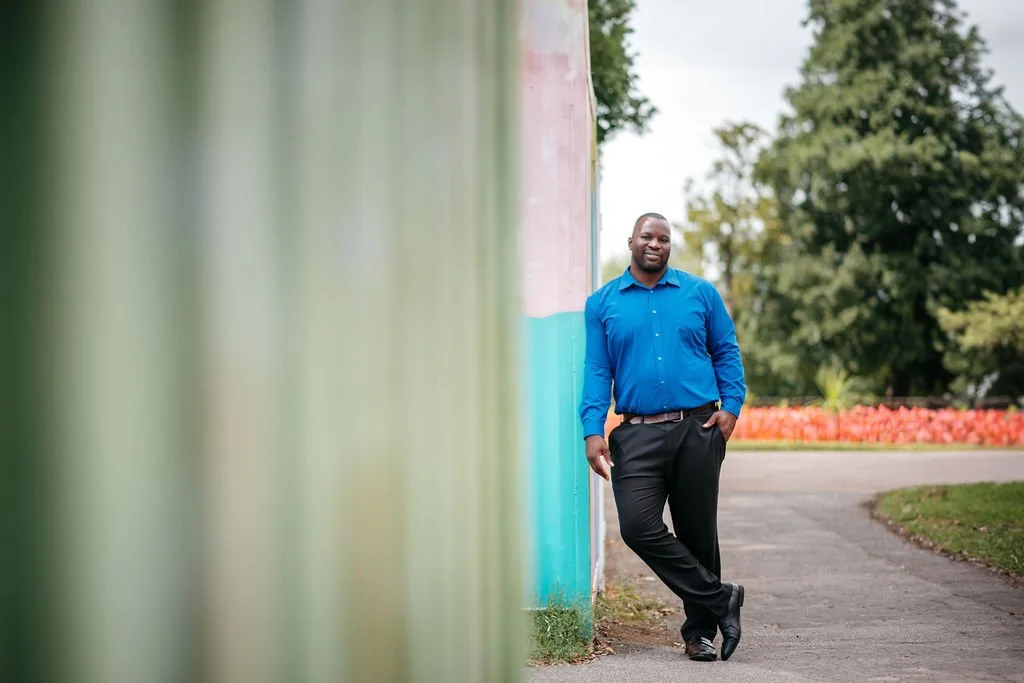“But do we really need an educational psychologist dear…?”
“Your child is struggling in school. Teachers are concerned, but you’re unsure if it’s just a phase. So you ask yourself: “Do we really need an educational psychologist, or can this problem be resolved on its own?”
Even us educational psychologists ask ourselves whether we are needed from time to time.
It’s a question a vast majority of households in the country have either contemplated or will contemplate at some point in their child’s developmental and educational trajectory. But with so many factors involved, not least of all considerable financial and time investment, how can we, as caring, conscious parents, decide to raise the white flag and ask for help? Well, while this article can’t decide for you, it most certainly can present a balanced discussion on when and why an educational psychologist's involvement might be essential and, why it might not be.
What does an Educational Psychologist do anyway?
Trust me, a lot!
“Despite the Dr title many of us have, it’s a common myth that EPs are all about diagnosing problems and handing out labels (they certainly can’t prescribe medication either!)”
First, in order to answer whether you need one, it's vital to understand what an educational psychologist (affectionately known as an EP) is. EPs are highly qualified educational professionals with a Master's or doctoral-level understanding of teaching, learning, and child and adolescent psychological development. Through many methods, EPs support children with learning challenges, social-emotional needs, or behavioural concerns. They do so by collaborating with schools, parents, and other professionals to create tailored strategies.
Despite the Dr title many of them have, it’s a common myth that EPs are all about diagnosing problems and handing out labels (they certainly can’t prescribe medication either!). It’s more about empowering students, families and their communities to achieve the best outcomes.
Common situations where an EP can help
Assessments are just the beginning…
While the nuanced ways of working that an EP can engage in are almost endless, some of the most common ways their expertise is used include exploring:-
Learning difficulties (e.g., dyslexia, ADHD).
Emotional or behavioural challenges (e.g., anxiety, school refusal).
Gifted children in need of enrichment or support.
Transition challenges, such as starting school or moving up a year.
Supporting whole school development (e.g. training and supervision)
EP’s also have a legal implication in contributing to a statutory document called the Education, Health and Care Plan. But we’ll talk more about that another time as it’s a whole other thing!
Benefit of early EP intervention
Having an EP onboard early could save a lot of future problems.
Another common myth is the belief that EP’s are only a last resort or “break in case of emergency” service. While, yes, EPs are great in pinches, such as hard-stuck cases and critical incidents. Some of our best work actually comes in the form of early interventions and planning for the future. Think of it like planting a tree: the sooner you address the roots, the stronger the tree will grow.”
The aforementioned (edit: evasively mentioned) Education, Health, and Care Plan process also benefits significantly from early involvement with an EP before an application is even made, as it demonstrates the lengths gone to help meet the child's needs through additional evidence.
Lastly, It's also useful for EPs to come on board sooner rather than later, as their nuanced information-gathering tools may highlight concerns hidden from you but clear to them, such as negative ingrained patterns, co-facilitating behaviours, and cognitive-based factors.
Why do some parents hesistate?
Like all things in life, sometimes its just not that simple.
Every parent’s situation will be different, and it is virtually impossible to describe even half of the reasons why families may not be able to request the involvement of an EP. However, through our extensive experience, possible common concerns have included:-
· Prohibitive costs and financial implications
EP involvement can cost hundreds, sometimes thousands, for an assessment. in this current economic climate where every penny counts, the price alone can be enough of a barrier to entry. That’s why it is essential to do research and find service providers that do subsidised or even free services (such as Emerald Bridges with our many discounts and free telephone consultation offerings). Your school may even have bought into a service already, which will eliminate the cost for you. But of course, naturally, their caseloads may have been decided based on priority months ago and may not have included your little one.
· Lack of clarity on the EPs exact contribution
“SENCOs”, “Inclusion managers”, “Specialist teachers”, “ELSA”, “EP” - the list of titles of potential avenues of professional support for your child goes on! It’s no wonder some parents get confused and overwhelmed by it all, especially when multiple professionals can explore the same difficulty in different ways. Take Dyslexia, for example. A SENCO/Inclusion manager may be able to conduct a dyslexia screener (a test that looks at the likelihood of a child having dyslexia). However, a specialist teacher and an EP can both diagnose dyslexia with very little difference in approach, barring that a psychologist may have additional tools to explore or comment on a broader range of needs.
· Overestimation of a school’s resource or capacity to handle the difficulty alone
Modern schools have a plethora of ambition and drive to ensure every child succeeds but, for one reason or another, lack the resources or manpower to do so. If they didn’t, then no child would be behind. With the hustle and bustle of keeping life going as it is for your family, it is entirely understandable that you’d want to hope that schools have it all in hand. Still, often the case, peering behind the curtain can reveal that they’re holding on just as desperately as you are. EP involvement (private, like us, or through the local authority) can help to lighten the load.
· The stigma involved in requesting help from an educational professional
Nobody likes to be judged! Even when we’re not even remotely being judged, the mind sometimes won’t relax and let us believe that. Gaining the help of a professional (particularly those within the mental health field) is frequently met with apprehension for fear of being labelled “broken,” “crazy,” or something else demeaning. Positive societal movements towards the acceptance of talking and celebrating mental health, well-being, and mental diversity have occurred. However still, undercurrents of discomfort continue to flow throughout our communities.
· Fear of appearing as a failed parent
In a similar vein as above, a parent's pride can be affected by the inclusion of outside professionals into the family sphere. Admitting the need for help and advice should never be perceived as a sign of weakness; however, for some communities, it is. Whether due to previous experiences of professional involvement, perceptions and opinions of other people in the community, or the dreaded but well-intentioned “side” comments from our golden generation extended family. Parents should never think they’ve failed just because an EP has become involved. After all, you can lose a race, but you can’t really lose a marathon, and childraising is most certainly a never-ending marathon.
· Cultural differences in the practice of letting an outsider into the home
This one may sound slightly “alien” to some people, but sometimes the closed family network is precisely that: a closed and sacred space that only those born or invited into it may share. It reminds me of a sign in the front of my mother's house, which is still there today. The abbreviated version of it is basically: “What you see here, what you hear here, what you do here… let it stay here, or don’t come back here.” It’s by no means a declaration of secrecy but highlights the desire to not let the outside in, or rather the inside out. Some families may have developed a similar code and, as such, do not want a professional to violate that code with their forms, probing questions, invasive surveys, and exposing assessments. In the circumstances like this, the family is in no shape, or way to be blamed, and the onus is on the EP or referring service to value this and coaxe a facilitating conversation in which both sides can be respected and responded to.
“Parents should never think they’ve failed just because an EP has become involved. After all, you can lose a race, but you can’t really lose a marathon and childraising is most certainly a never-ending marathon.”
How to decide if you need an Educational Psychologist?
Once you’ve done everything on this list…
While the above checklist is slightly “tongue-in-cheek,” it highlights the impossible task of creating prerequisites before contacting an educational psychologist. Instead, it would be more beneficial to ask yourself, your school, and even your child themselves through re-formulation the following question:
“Is your child’s struggle persistent, impacting their well-being, or beyond the school’s resources?”
If the answer is yes, then it may be worth at least speaking to an EP. Many offer introductory conversations, while some (such as the brilliantly named Emerald Bridges CPAS) offer full, no-obligation telephone consultations. And that’s the main thing to remember: talking to an EP doesn’t mean committing; it’s about exploring options!
Conclusion: Commissioning an Educational Psychologist is a tough decision…
…But you certainly don’t have to make it alone!
Every case/child/family is unique and unfortunately there is no hard and fast answer to whether or not you need an educational psychologist. However, its an absolute given that you will likely benefit from talking to one. After reading this article, The main takeaway action is this: talk to us (both EPs in general and us here at Emerald Bridges). We understand that it’s natural to wonder if “yet another expense” is necessary, but delaying action often means challenges persist longer. When your car is making a strange noise, do you bring it to the mechanics to have it investigated? Or do you wait to see whether it's nothing, only for it to break down irreparably on the side of the motorway when you least suspect it?
(that reminds me: when is my MOT due….)








